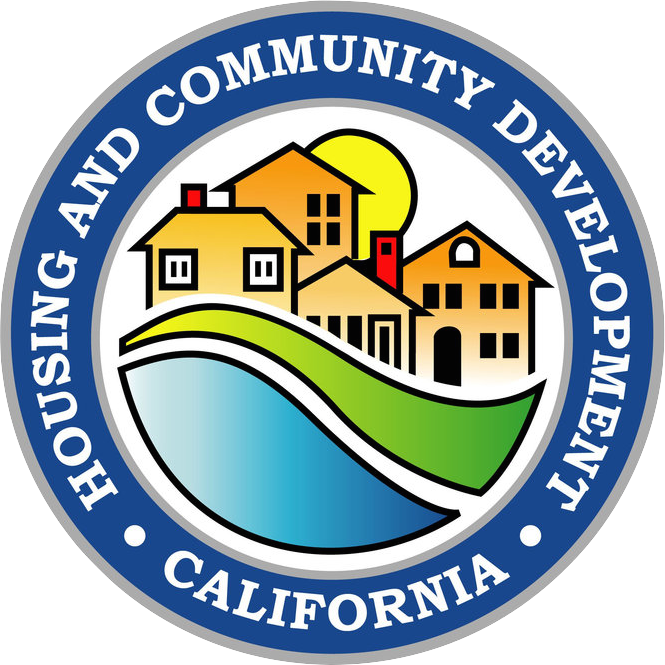Six Months After Devastating Los Angeles Area Fires, State Housing Leaders Reflect on Ongoing Role in Administration’s Recovery and Rebuilding Efforts
July 7, 2025
July 7, 2025

Sacramento, CA
As California marks six months since unprecedented wildfires created a path of destruction in Southern California, the California Department of Housing and Community Development (HCD) is reflecting on its ongoing role in the Newsom Administration’s “all-hands-on-deck” efforts to support recovery and rebuilding for Los Angeles communities.
“Governor Newsom’s immediate and full attention to this unprecedented crisis gave all departments the resources and flexibility to be responsive to the needs of fire survivors and put the wheels of recovery in motion,” said HCD Director Gustavo Velasquez. “We remain committed to helping impacted Los Angeles area communities rebuild and meet the critical housing need of residents at all income levels.”
In the immediate aftermath of fires that displaced thousands of Los Angeles area households, HCD dispatched numerous team members to support residents at Disaster Recovery Centers in Pasadena, the City of Los Angeles, and Altadena.
HCD dispatched personnel to the California Office of Emergency Services (CalOES) State Operations Center and communicated real-time updates on impacted mobilehome parks in Los Angeles County. As soon as it was safe to enter impacted areas, HCD assessed the conditions of mobilehomes and manufactured homes in three mobilehome parks destroyed by the fires and reported data through CalOES.
Behind the scenes, program staff reached out to HCD-funded properties across the region to assess damages and determine needs for which they could provide assistance or resources.
HCD made, and kept, an immediate and unwavering commitment to be as responsive and flexible as statute allowed and to work in partnership with stakeholders to address near- and long-term challenges.
To that end, HCD extended funding application deadlines for the HOME Investments Partnership (HOME) program, the Homeownership Super NOFA, and Homekey+. Fire-impacted entities were given more time to apply to the Emergency Solutions Grants (ESG) program, and the already closed HOME American Rescue Plan (HOME-ARP) Re-Entry Housing NOFA was re-opened. In addition to extending the deadline to apply to the Permanent Local Housing Allocation (PLHA), HCD allowed fire-impacted jurisdictions to amend their existing five-year PLHA plan to support fire recovery efforts consistent with the program’s eligible uses.
When the $382 million Multifamily Finance Super NOFA was released in mid-February, it was announced that HCD would begin discussions with fire-impacted communities and other stakeholders to inform the development of a separate $96 million special MFSN NOFA to support recovery and rebuilding in Los Angeles. Additional funds have since been identified for the soon-to-be-released NOFA.
HCD also offered extensions to fire-impacted communities on annual or biannual reporting requirements; Funding Disbursement Request deadlines; and the deadline for fiscal reports for the Homeless Housing, Assistance, and Prevention (HHAP) Program; Encampment Resolution Fund (ERF) Program, and Family Homelessness Challenge (FHC) Grant Program. HHAP and grantees needing to pivot their funding plans to support emergency response and recovery within eligible uses were offered expedited review of modifications; ERF grantees received the same offer for needed budget amendments. Deadlines for fire-impacted communities were also extended for housing element rezones and responses to enforcement letters from HCD’s Housing Accountability Unit.
In late January, when the U.S. Department of Housing and Urban Development (HUD) allocated $8 million in Rapid Unsheltered Survivor Housing (RUSH) funding in response to the wildfires—including $3 million to the state—HCD’s partnership with the Los Angeles County Development Authority allowed for the funds to be awarded quickly. HCD coordinated with HUD, Los Angeles County, and other local grantees to organize technical assistance and peer sharing calls so resources for individuals facing homelessness during and following the disaster could be deployed without delay. The $3 million in federal RUSH funds passing through HCD will help a Pasadena-area nonprofit rapidly re-house fire survivors experiencing homelessness.
In the days, weeks, and months following the wildfires, Governor Newsom enacted a series of Executive Orders in close collaboration with fire-impacted communities to assist fire survivors and facilitate recovery. Fire-impacted jurisdictions have credited these orders with making a significant positive impact on rebuilding and recovery efforts. The orders allowed HCD to take additional actions to support recovery efforts:
- In alignment with Governor Newsom’s Executive Order N-23-25, HCD moved to support residents displaced by the fires and experiencing homelessness by prioritizing them on waiting lists for HCD-funded affordable rental housing for which they otherwise meet eligibility requirements. HCD conducted a survey of all HCD-funded housing projects in Los Angeles County to identify projects with vacant units. Of the 239 HCD responses received, 141 properties reported a total of 723 vacant units available June 2025. HCD shared the list of properties with vacancies with Los Angeles County to facilitate a coordinated approach to matching residents displaced by the wildfires with potential housing opportunities.
- HCD collaborated closely with local jurisdictions and other state agencies to implement two executive orders (N-4-25, paragraphs 4-6; and N-9-25, paragraph 7) that:
- Facilitate rapid, safe, and cost-effective rebuilding and recovery for those impacted by the fires, and
- Supplied local governments with standards for the use of mobilehomes, manufactured homes, recreational vehicles, and mobilehome parks as temporary housing.
Beyond these and other internal changes made to most effectively and efficiently support fire recovery and rebuilding efforts, HCD took the lead on the State Housing Task Force (HTF) and established the Joint Field Office on January 20, 2025. With leadership and support from the California Business, Consumer Services and Housing Agency, the State HTF was charged with coordinating with local, state, and federal partners to support the short-term, intermediate, and long-term housing goals for survivors of the 2025 wildfires.
On February 12, 2025, the State HTF integrated with the Los Angeles County Housing Task Force to form the Joint County-State Housing Task Force. The Joint HTF provided oversight and management for two working groups: the Pre-Disaster Unhoused Working Group, and the Shelter Transition Working Group. These teams met daily to find temporary housing solutions for displaced disaster survivors staying in American Red Cross congregate shelters, and to find interim housing solutions for people in the shelters who had been experiencing homelessness prior to the fires. By March 3, 2025, all American Red Cross congregate shelters were closed, and 86 individuals experiencing homelessness before the fires were successfully rehoused through the efforts of the Pre-Disaster Unhoused Working Group.
As emergency response shifted into short- and medium-term recovery, the Joint HTF set up two additional working groups: the Senior Reverse Mortgage Working Group, and the Affordable Housing Financing Working Group. The Senior Reverse Mortgage Working Group is focused on helping older adults affected by the fires understand their existing reverse mortgage and the implications of property damage or loss. The Affordable Housing Financing team is working with various county departments on a range of objectives for long-term housing recovery for future state and federal collaboration.
The Disaster Recovery team from HCD’s Division of Federal Financial Assistance will join federal, state, and local officials later this week for a discussion organized by HUD’s Housing Recovery Support Function (RSF) with a focus on addressing disaster housing issues with solutions that are feasible, enduring, and resilient. As states and communities look to the federal government for assistance in housing both disaster survivors and others who live in recovering communities, the Disaster Recovery team’s experience with wildfire recovery will be critical to guiding how Housing RSF coordinates and effectively integrates available housing-related resources, addresses conflicting policy/program issues, and identifies gaps in service and assistance delivery.

